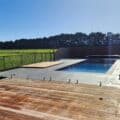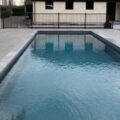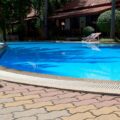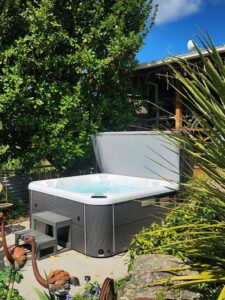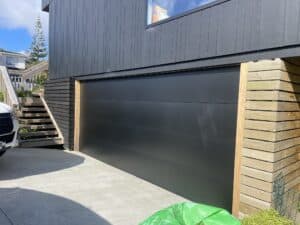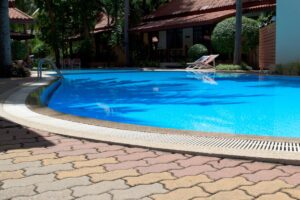When it comes to pool ownership in Christchurch, ensuring safety, compliance, and aesthetic appeal are paramount. One of the most important decisions you’ll make as a pool owner is choosing the right material for your pool fence.
With various materials available, it’s essential to consider factors like local regulations, climate, and personal preferences. In this guide, we’ll walk you through the key points to help you make an informed decision about your pool fence material.
Understanding Pool Fencing Regulations in Christchurch
Compliance with Local Pool Fencing Laws
In Christchurch, like the rest of New Zealand, pool fencing is regulated by strict safety standards. The primary aim is to prevent accidents, particularly involving young children. Pool fences must meet certain height, gap, and durability requirements to ensure they are effective in keeping people out of the pool area.
Understanding and adhering to these regulations is critical, as failing to comply can result in fines or the need to make costly adjustments.
Pool Fencing Building Codes in New Zealand
New Zealand’s pool fencing regulations are governed by the Building Code and the Fencing of Swimming Pools Act 1987. Pool fences should be at least 1.2 metres high and have no gaps larger than 100mm. Additionally, gates must open outwards and be self-closing with a latch that children cannot easily operate.
When choosing a material, make sure it complies with these regulations to avoid potential legal issues down the line.
Common Pool Fence Materials in Christchurch
Glass Pool Fencing
Pros:
- Modern and Aesthetic: Glass fences offer a sleek, contemporary look that enhances the overall visual appeal of your pool area. The transparency allows for unobstructed views of your pool, perfect for larger properties or spaces with a scenic backdrop.
- Low Maintenance: Glass fences are easy to maintain, as they don’t require painting or staining.
- Durability: Tempered glass is strong and resistant to weather conditions in Christchurch, including rain and wind.
Cons:
- Cost: Glass is one of the more expensive options for pool fencing.
- Cleaning: While durable, glass can show smudges and dirt, especially in areas with high winds or dust, so regular cleaning is required.
- Potential Fragility: While tempered glass is tough, it can still break under certain conditions, such as heavy impact.
Aluminium Pool Fencing
Pros:
- Durable and Corrosion-Resistant: Aluminium is perfect for Christchurch’s varying climate, as it won’t rust or corrode over time.
- Variety of Finishes: Aluminium comes in a range of colours and styles, allowing you to match the fence to your home’s exterior or landscaping.
- Low Maintenance: Aluminium fences require very little upkeep. They won’t need repainting or staining like timber fences.
Cons:
- Visual Appeal: Some people feel aluminium lacks the sleek, clean look of glass or the natural appeal of timber.
- Potentially Less Secure: Depending on the design, aluminium fences may not offer the same level of security as some other materials.
Steel Pool Fencing
Pros:
- Sturdy and Secure: Steel is one of the strongest materials for pool fencing, offering maximum security for families with young children or pets.
- Long-lasting: Steel fences are incredibly durable and can withstand Christchurch’s windy and wet conditions.
- Elegant: Steel fences, particularly wrought iron, add an elegant touch to your property.
Cons:
- Rusting: Steel can rust over time if not properly maintained, requiring regular upkeep, especially near salty coastal areas.
- Heavier: Steel fences are typically heavier than other materials, which can make installation more complicated and expensive.
Timber Pool Fencing
Pros:
- Natural Look: Timber fences have a warm, natural aesthetic that blends seamlessly with landscaping and outdoor spaces, making it an excellent choice for those with gardens or more rustic home designs.
- Customisable: Timber fences can be easily customised to fit the design and height requirements of your pool area.
Cons:
- Maintenance: Timber requires regular maintenance to prevent weathering, fading, and damage from moisture. You’ll need to repaint, stain, or treat the wood periodically.
- Vulnerability to Weather: Timber can warp, crack, or rot over time, particularly in areas with high moisture, such as Christchurch’s rainy months.
Wrought Iron Pool Fencing
Pros:
- Classic and Elegant: Wrought iron fences offer a timeless, elegant look that complements traditional or stately homes.
- Durable: Like steel, wrought iron is a strong material that can withstand both impact and the elements.
- Security: Wrought iron provides excellent security due to its strength.
Cons:
- Cost: Wrought iron is often the most expensive pool fence material.
- Rusting: Similar to steel, wrought iron is prone to rusting and requires regular maintenance and coating to prevent deterioration.
Factors to Consider When Choosing the Right Pool Fence Material
Christchurch’s Climate and Weather Conditions
Christchurch experiences a range of weather conditions, from wet and windy winters to hot, dry summers. When choosing a pool fence material, it’s essential to consider how each material will hold up under these conditions.
Glass and aluminium fences tend to handle Christchurch’s climate well, as they are resistant to rust and corrosion. Timber fences, on the other hand, require more maintenance to avoid weathering and decay.
Safety Considerations
The primary purpose of pool fencing is safety. Materials like glass offer clear visibility and safety for children and pets, but you’ll need to ensure the glass is properly secured with non-climbable frames and a high-quality locking mechanism.
Aluminium and steel are both strong materials that provide reliable security, while timber fences might be less secure unless designed with appropriate height and barriers.
Aesthetic Preferences and Home Design
The material you choose for your pool fence should complement the overall aesthetic of your property. Glass offers a minimalist and modern look, while timber provides a natural and rustic feel.
Aluminium and wrought iron offer a sleek, polished appearance that works well with both contemporary and traditional designs. Consider your home’s exterior and landscaping to find a fence material that enhances your outdoor living space.
Budgeting for Your Pool Fence Material
Initial Costs vs Long-Term Investment
The initial cost of the fence is an important consideration. Glass and wrought iron are generally the most expensive options, while aluminium and timber tend to be more affordable. However, it’s also essential to think about long-term costs.
For instance, while glass may have a higher initial cost, it requires minimal maintenance. On the other hand, timber fences may have a lower upfront cost but will require ongoing maintenance.
Hidden Costs and Installation Fees
Installation costs can vary significantly depending on the complexity of the fence design and the material chosen. Glass and wrought iron, for example, may require specialised installation, which can increase the overall cost.
Always factor in the cost of professional installation and any potential hidden fees for permits or customisation.
Maintenance and Longevity of Pool Fencing Materials
How to Maintain Your Pool Fence
Each type of pool fence material has its own maintenance requirements. Glass fences should be cleaned regularly to keep them clear and free of smudges. Timber fences require periodic staining or painting to protect them from the elements. Aluminium and steel fences need minimal maintenance but should be inspected for any signs of wear or damage.
Longevity of Different Materials
- Glass: Can last for decades with minimal maintenance, but may need occasional cleaning and professional repairs if cracked.
- Aluminium: Very durable, often lasting 30+ years with proper care.
- Steel and Wrought Iron: Extremely long-lasting but prone to rusting without regular maintenance.
- Timber: Typically lasts 10-20 years but requires more frequent repairs and upkeep.
Local Christchurch Suppliers and Installation Services
Choosing the Right Pool Fencing Supplier
When selecting a supplier, ensure they offer a range of high-quality materials, provide warranties, and have a good reputation for customer service. Local suppliers in Christchurch will be familiar with the area’s specific requirements and climate, helping you make the best decision.
Professional Pool Fence Installation in Christchurch
It’s often best to hire a professional for pool fence installation. A certified installer will ensure that your fence meets safety standards and is properly fitted. Look for local pool fencing companies with experience and positive customer reviews.
Final Thoughts
Choosing the right pool fence material in Christchurch is a big decision, but by considering factors such as safety, climate, aesthetics, and budget, you can make an informed choice.
Whether you opt for the modern appeal of glass, the durability of aluminium, or the natural look of timber, ensure that your fence meets local regulations and provides the necessary security for your family.
If in doubt, consult with a professional installer who can guide you through the process and ensure your pool area is safe and stylish for years to come.



